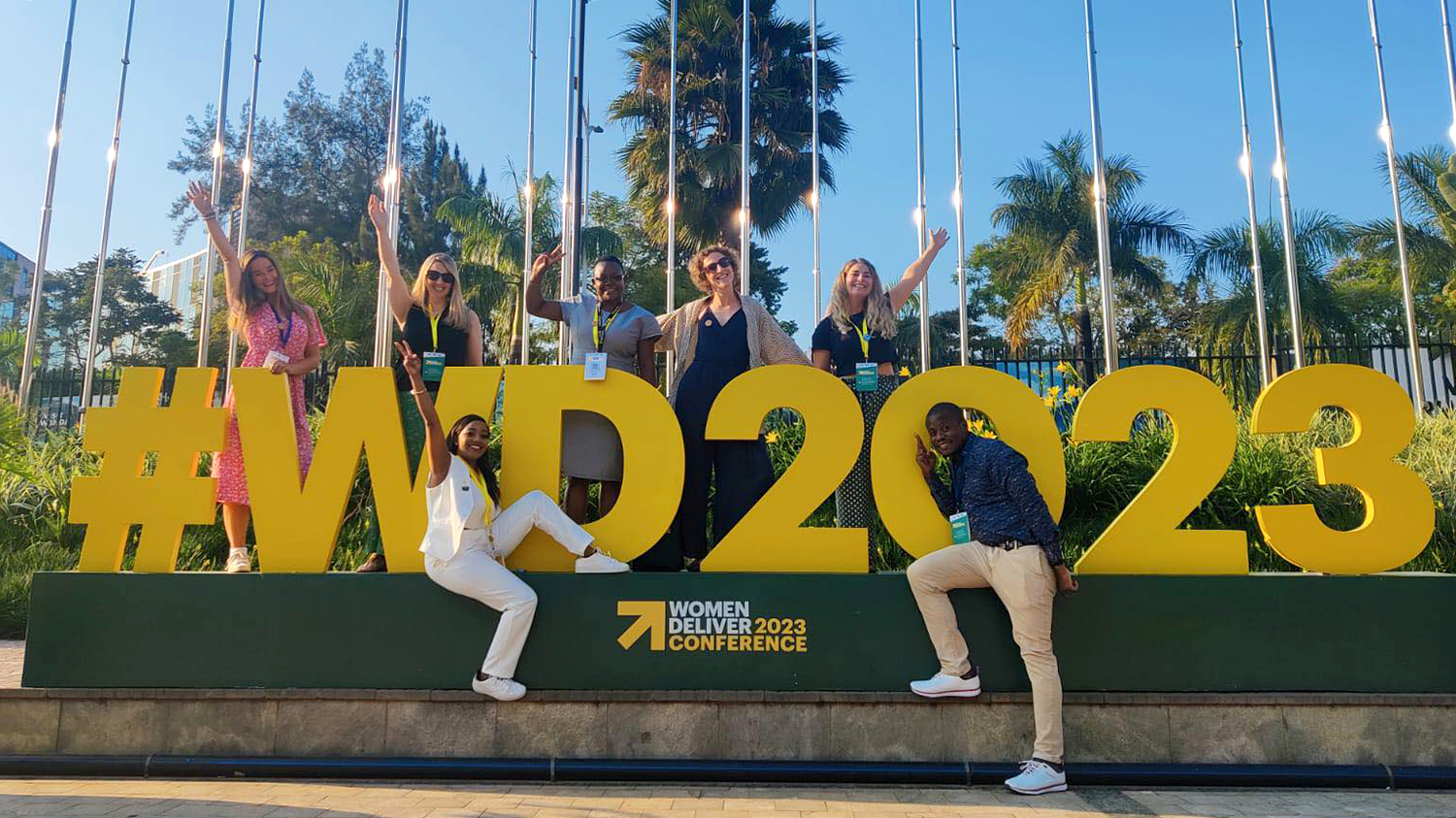

Women with disabilities take center stage
Over the past year, Sightsavers, together with our partners, has advocated for women with disabilities to make their voices heard on Women Deliver. So it was encouraging to see many women with disabilities sharing their experiences and knowledge at different events throughout the conference.
I had the honor of watching my colleague Gertrude ‘Getty’ Oforiwa Fefoame, global advocacy manager at Sightsavers and chair of the United Nations Committee on the Rights of Persons with Disabilities, speak at the plenary session on disability accountability. gender commitments. This was one of the most attended plenary sessions and was opened by Malala Yousafzai. Malala spoke passionately about the importance of collective action and how “every girl can be a Malala if she can access her rights.”
In front of presidents, government ministers and heads of UN agencies, Getty shared her thoughts on how mechanisms that monitor progress on gender commitments can become more inclusive. She highlighted how women with disabilities should be at the table when gender policies and programs are designed. She also emphasized the importance of collecting and using inclusive data (data that is representative of all people, especially those who have been marginalized and excluded) to inform these policies.
Getty also used this platform to highlight the barriers experienced by women with disabilities during the Generation Equality Forums in 2021 and called on states and UN agencies to sign up to the Feminist Accessibility Protocol. This is a set of 13 commitments to ensure that gender debates and decision-making spaces are fully accessible and inclusive for disabled feminists.
It was good to see women with disabilities take to the stage in three plenary sessions throughout the conference. For example, Catalina Devandas shed light on the harmful practices to which women with disabilities are often exposed, including forced sterilization, abortion and contraception, at the plenary on sexual and reproductive health and rights. Experts discussed how ensuring women and girls have autonomy over their own bodies and their future is the right thing to do and a smart investment, so it was great to see disability being included in this conversation.
As part of the Sightsavers leadership of the Inclusive Futures consortium, our team sponsored two OPD leaders, Lucy Mulombii and Esther Mkamori, to attend the conference and share your ideas. Through this initiative, we show our commitment to supporting women with disabilities to tell their own stories. Liz Ombati’s guide to reporting on disability It was also included in the Women Deliver media pack, which was sent to all journalists in attendance. This shares an important message with the media to do more to accurately reflect the lived experience of people with disabilities.
A key moment for Generation Equality
Women Deliver was also a key moment for Generation Equality, the world’s leading initiative to accelerate investment in gender equality and ensure its implementation. Unfortunately, disability inclusion is overlooked in this process.
With this in mind, I had the pleasure of watching Maryangel García-Ramos, CEO of Women Enabled International, speak about the importance of disability inclusion at the Generation Equality Impact Fest. We’ve been working closely with Women Enabled International in the run-up to the conference, so it was fantastic to see Maryangel highlight the urgent need to collect and use inclusive data when creating, implementing and tracking Generation Equality commitments.
She also highlighted the great work of the Inclusive Generation Equality Collective (IGEC), which raises the voice of feminists with disabilities to ensure their effective participation and inclusion in Generation Equality. As only a very small number of Generation Equality commitments include disability, Maryangel used this platform to call for more commitments and reporting on disability and intersectionality.







